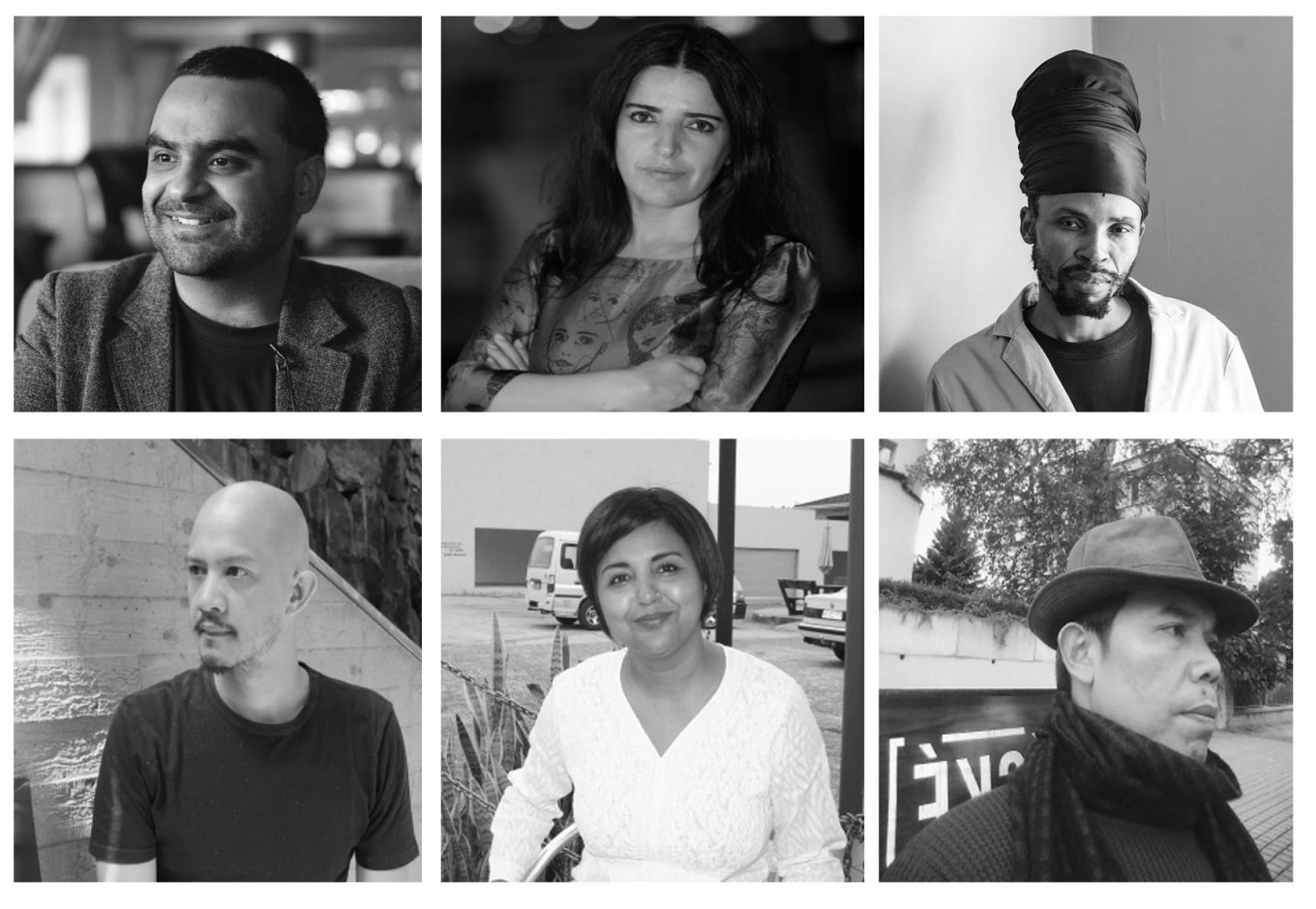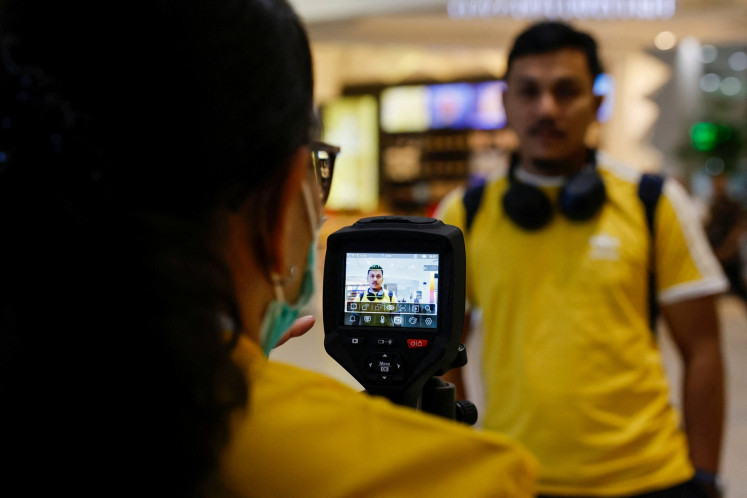Popular Reads
Top Results
Can't find what you're looking for?
View all search resultsPopular Reads
Top Results
Can't find what you're looking for?
View all search resultsJakarta’s literary festival to highlight Southern identity
Authors from Asia and Africa are to take center stage at the first-ever Jakarta International Literary Festival, which runs from Aug. 20 to 24.
Change text size
Gift Premium Articles
to Anyone
 Voices from the South: The upcoming Jakarta International Literary Festival (JILF) is to feature a number of Asian and African authors, including (first row from left) Indian poet and queer activist Akhil Katyal, Turkish poet Bejan Matu, Bostwana’s Legodile Seganabeng, (second row) Thailand’s Prabda Yoon, South African writer-journalist Zainab Priya Dala and Indonesia’s Zen Ha. (JILF/-)
Voices from the South: The upcoming Jakarta International Literary Festival (JILF) is to feature a number of Asian and African authors, including (first row from left) Indian poet and queer activist Akhil Katyal, Turkish poet Bejan Matu, Bostwana’s Legodile Seganabeng, (second row) Thailand’s Prabda Yoon, South African writer-journalist Zainab Priya Dala and Indonesia’s Zen Ha. (JILF/-)
A
uthors from Asia and Africa are to take center stage at the first-ever Jakarta International Literary Festival (JILF), which runs from Aug. 20 to 24.
The literary festival, which is to take place at the Taman Ismail Marzuki arts center in Central Jakarta, was initiated by the Literary Committee of the Jakarta Arts Council.
Committee chairman Yusi Avianto Pareanom said that although the concept of a literary festival is not a new thing for Jakarta, the Literary Committee never organized its own festival until it conceived of JILF.
In a bid to differentiate itself from other literary festivals, JILF decided to emphasize identity.
“We’ve agreed that we would borrow the spirit of Asia-Africa [and] the interconnectedness of the South,” Yusi said during his recent visit to The Jakarta Post.
Yusi, also JILF curator and director, suggested that the literary scenes within Asia and Africa should have had a much closer relationship than they have today.
“As an example, I’m sure we can recognize authors from Thailand, Vietnam, or Papua New Guinea; however, they may not be at the top of our minds.”
For its initial edition, the festival takes on the theme of Pagar (Fence) – a metaphor for biases that separate one group from another.
“A fence is different from a wall. A wall is opaque, while you can still see something beyond a fence. As soon as the fence is opened, you are also open to interactions and transactions,” Yusi explained.
As if to slowly pry open the fence, JILF has invited a number of authors of varying backgrounds to share their experiences, with 15 international authors in the mix.
A number of pre-festival discussions have been held from April to July in various locations under the central theme of “The Many Faces of the South”. These discussions have topics related to the symposiums that are to be held in the main event.
In “The South Gazes Back” symposium on Aug. 23, Indian poet and queer activist Akhil Katyal is to join Prabda Yoon of Thailand and Indonesian author Zen Hae in discussing the South’s perspectives in looking at themselves and the North/West.
In another symposium, “Against Biases”, Turkish poet Bejan Matur and South African writer-journalist Zainab Priya Dala, alongside Indonesia’s Saras Dewi, are to speak about the impact of gender in literature, from the genre of women’s lit to the practice of using a male penname.
JILF is to also host some other programs, such as the Literary Ecosystem Lab, a series of free workshops that cover wide-ranging topics, from creative writing and translation to alternative book shops and literary agents.
An intriguing exhibition entitled “Sastra Liar in Era Kolonial” (Colonial Bastard the Forbidden Fictions) is to take place throughout the five-day festival, showcasing Indonesian literature from 1918 to 1926 that was banned by the colonizers of the time for transgressing beyond their ideas.
Supporting programs are to include live music performances, reading nights, culinary treats and a book bazaar.
The festival is expected to draw 2,000 visitors every day, mostly from the younger generations – which, according to Yusi, have a growing interest in reading.
“You can see it in their social media accounts. Reading has become ‘the new cool’ or so, and maybe there’s a hint of bragging as well. But from the peer pressure to show off, the younger generation can develop an earnest love of reading.”










